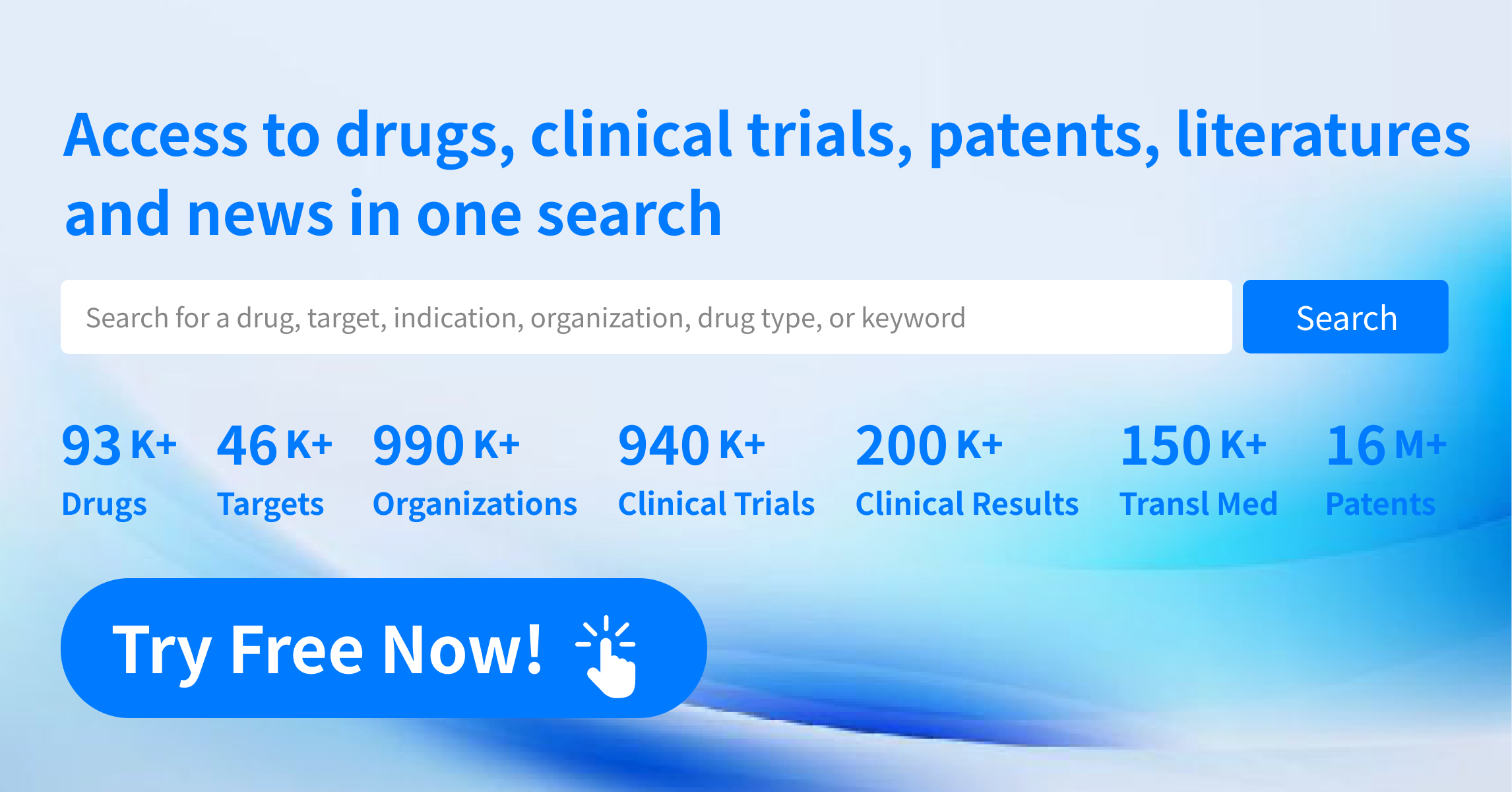Pharma Frontiers: Daily Digest of Global Pharmaceutical News – Aug 7
1.Antengene’s Anti-Cancer Drug Selinexor Approved for Market in Malaysia
On August 6th, Antengene announced that the National Pharmaceutical Regulatory Agency of Malaysia has approved its new drug application for Selinexor. The approvals are for:
1)Use in combination with Bortezomib and Dexamethasone for the treatment of adult patients with multiple myeloma (MM) who have received at least one prior therapy.
2)Use in combination with Dexamethasone for the treatment of adult patients with MM who have received at least four prior therapies and are refractory to at least two proteasome inhibitors, two immunomodulatory agents, and one anti-CD38 monoclonal antibody, and have demonstrated disease progression on the last therapy.
Selinexor is an oral selective inhibitor of nuclear export (SINE) that works by inhibiting the nuclear export protein XPO1. This inhibition promotes the nuclear retention and activation of tumor suppressor proteins and other growth regulatory proteins while downregulating various oncogenic protein levels in the cytoplasm. Selinexor exerts its anti-tumor effects through three main pathways:
1)Significant accumulation of tumor suppressor proteins in the nucleus, reactivating their anti-tumor function.
2)Retention of oncogenic mRNA in the nucleus, reducing oncogenic protein levels in the cytoplasm.
3)Activation of the glucocorticoid receptor (GR) pathway, restoring hormone sensitivity.
Antengene has also submitted NDA applications for this product in Thailand and Indonesia, with approvals expected in the second half of 2024. Meanwhile, Antengene is working to expand the indications for Selinexor, including various combination therapies for diseases such as myelofibrosis (MF), T-cell non-Hodgkin lymphoma (T-NHL), and endometrial cancer.
2.Bayer's "First-in-Class" Therapy Achieves Phase 3 Clinical Endpoint, Plans Regulatory Submission
On August 6th, Bayer announced that its "first-in-class" therapy Kerendia (finerenone) achieved the primary endpoint in the Phase 3 clinical trial FINEARTS-HF for treating heart failure (HF) patients with left ventricular ejection fraction (LVEF) ≥40%. The trial demonstrated a significant reduction in the composite endpoint of cardiovascular death and heart failure events. Based on these positive results, the company plans to discuss a regulatory submission with the U.S. FDA to expand the indications for Kerendia.
Kerendia is a non-steroidal mineralocorticoid receptor antagonist (MRA) that received FDA approval in July 2021 to reduce the risk of sustained decline in estimated glomerular filtration rate (eGFR), end-stage renal disease, cardiovascular death, non-fatal myocardial infarction, and hospitalization for heart failure in adult patients with chronic kidney disease (CKD) associated with type 2 diabetes (T2D).
Heart failure is a complex clinical syndrome caused by any structural or functional impairment of ventricular filling or ejection. Treatment options for these patients are limited, and they often have multiple comorbidities, such as obesity, hypertension, and chronic kidney disease, which add additional considerations for physicians.
These positive topline data indicate that Kerendia's benefits are not limited to the CKD patient population with T2D, but also extend to patients with heart failure (LVEF ≥40%). Bayer will present the FINEARTS-HF data at the European Society of Cardiology (ESC) Congress in September 2024 and plans to discuss regulatory approval with the U.S. FDA to expand Kerendia's indications.
3.Haisco Pharmaceutical's Class 1 Innovative Drug HSK44459 Approved for Clinical Trials
On August 6th, the website of China's Center for Drug Evaluation (CDE) under the National Medical Products Administration (NMPA) announced that Haisco Pharmaceutical's Class 1 new drug HSK44459 tablets have been granted an implied clinical trial license. The drug is intended for the treatment of interstitial lung disease (ILD).
According to previous announcements by Haisco, HSK44459 is a novel drug independently developed for the treatment of ILD. It is a highly selective phosphodiesterase 4B (PDE4B) inhibitor. Interstitial lung disease (ILD) is a group of heterogeneous diseases characterized primarily by inflammation and fibrosis of the lung interstitium. The etiology of ILD is complex, primarily affecting the lung interstitium, alveoli, and/or bronchioles, with more than 200 specific types identified. Without effective treatment, most ILDs can progress to diffuse pulmonary fibrosis, leading to the destruction of lung tissue structure, impaired diffusing capacity, gradual onset of respiratory failure, and ultimately death. Idiopathic pulmonary fibrosis (IPF) is one of the most representative types of ILD, often referred to as the "cancer that is not cancer."
Based on publicly available information from Haisco, HSK44459, as a highly selective PDE4B inhibitor, achieves anti-inflammatory and anti-fibrotic effects by inhibiting the exudation of inflammatory factors (primarily) and the proliferation and activation of fibroblasts. Compared to traditional non-selective PDE4 inhibitors, selective PDE4B inhibitors are expected to retain anti-inflammatory effects while reducing gastrointestinal and central nervous system side effects.
Non-clinical studies of HSK44459 have shown that the drug has anti-inflammatory effects on various immune cells and exhibits good anti-inflammatory and anti-fibrotic efficacy in animal models of lung injury or pulmonary fibrosis. Additionally, the product has a low risk of cardiotoxicity and good safety profile.
The approval of HSK44459 tablets for clinical trials marks another milestone for Haisco in the field of respiratory diseases, bringing a new drug into clinical evaluation. Phosphodiesterase 4 (PDE4) is a member of the phosphodiesterase (PDE) family that regulates the production of pro-inflammatory and anti-inflammatory cytokines through the specific hydrolysis of the second messenger cAMP, thereby exerting a range of biological effects.
4.Zelgen Biopharmaceuticals' Two Innovative Bispecific Antibody Drugs Approved for Clinical Trials
On August 6th, Zelgen Biopharmaceuticals announced that two of its clinical trial applications have been approved by China's Center for Drug Evaluation (CDE) under the National Medical Products Administration (NMPA). The approvals are for: 1) ZG005 in combination with bevacizumab for the treatment of advanced hepatocellular carcinoma (HCC), and 2) ZG005 in combination with ZGGS18 for the treatment of advanced solid tumors.
According to the announcement, ZG005 is a recombinant humanized anti-PD-1/TIGIT bispecific antibody lyophilized powder for injection, classified as a Category 1 innovative tumor immunotherapy biological product. It is expected to be used for the treatment of various solid tumors. ZGGS18 is a recombinant humanized anti-VEGF/TGF-β bifunctional antibody fusion protein, also classified as a Category 1 therapeutic biological product, and is anticipated to be an innovative biological product for the treatment of solid tumors.
Liver cancer is the third leading cause of cancer-related deaths worldwide. Hepatocellular carcinoma (HCC), the most common type of liver cancer, accounts for 85% to 90% of primary liver cancers. HCC is typically diagnosed at an advanced stage with high malignancy, where effective treatments are limited and patients often have poor prognoses.
Reportedly, ZG005 can simultaneously block PD-1 and TIGIT, promoting the activation and proliferation of T cells and the activation and proliferation of T cells and NK cells, thereby enhancing the immune system's ability to kill tumor cells through a synergistic effect. ZGGS18 can specifically bind to VEGF and "capture" TGF-β, inhibiting tumor angiogenesis and reducing tumor metastasis, thus exerting multiple synergistic effects in suppressing tumor growth. Additionally, ZGGS18 can improve and regulate the tumor microenvironment, thereby enhancing the tumor-killing effects when combined with tumor immunotherapy drugs like ZG005.
5.Hinova Pharmaceuticals Submits Clinical Application for New Oral Protein Degrader Targeting Breast Cancer
On August 6th, the latest announcement on the website of China's Center for Drug Evaluation (CDE) under the National Medical Products Administration (NMPA) revealed that Hinova Pharmaceuticals' clinical trial application for its Category 1 new drug, HP568, has been accepted. According to publicly available information from Hinova Pharmaceuticals, this is an efficient, targeted oral protein degradation chimera (PROTAC) drug targeting the estrogen receptor (ER), intended for the treatment of ER+ breast cancer. This marks the first clinical application for the product in China.
At the 2024 American Association for Cancer Research (AACR) Annual Meeting held in April, the research on HP568 for breast cancer treatment was selected for the Late-Breaking Research category. According to the research presented by AACR, breast cancer remains an unmet medical need. The estrogen receptor (ER) is expressed in 75% of breast cancers and plays a key role in the occurrence and development of the disease. Endocrine therapy targeting ER is the main treatment for ER+ breast cancer, but resistance inevitably arises due to ER gene mutations.
ER-targeted protein degradation chimeras represent an emerging new approach, which aims to interrupt ER signaling by degrading ER, providing a novel therapeutic solution to overcome endocrine therapy resistance in breast cancer patients. The data disclosed at the AACR Annual Meeting indicate that HP568, as an ER-targeted PROTAC developed by Hinova Pharmaceuticals, is highly effective against both wild-type ER and ER mutants. It also exhibits favorable ADME properties.
In comparative efficacy studies, HP568 demonstrated dose-dependent and excellent efficacy, which was highly consistent with drug exposure curves and PD biomarkers. Additionally, HP568 showed synergistic effects when combined with CDK4/6 inhibitors. Moreover, HP568 exhibited good tolerability in animal toxicity studies.
6.Boan Biotechnology's Dulaglutide Biosimilar Approved for Clinical Trials in the United States
On August 5th, Boan Biotechnology announced that the U.S. FDA has approved the initiation of clinical trials for its independently developed dulaglutide injection (BA5101) in the United States. BA5101, a biosimilar of Trulicity, is intended for blood glucose control in patients with type 2 diabetes. According to Boan Biotechnology's press release, BA5101 is the first dulaglutide injection developed by a Chinese company to receive approval for clinical trials in the U.S. Previously, the New Drug Application (NDA) for BA5101 was accepted by the National Medical Products Administration (NMPA) in China in May of this year.
Dulaglutide is a long-acting GLP-1 (glucagon-like peptide-1) receptor agonist that is administered once a week. Compared to other types of antidiabetic drugs, dulaglutide can improve pancreatic beta-cell function, stably and effectively lower blood glucose and glycated hemoglobin (HbA1c) levels. Additionally, its unique mechanism of action reduces the risk of hypoglycemia, aids in weight loss, lowers lipid levels, and reduces the risk of long-term cardiovascular diseases, while also providing renal protection. Multiple clinical studies have demonstrated that the once-weekly administration of dulaglutide reduces the inconvenience of medication for patients, leading to higher compliance.
The original dulaglutide product, Trulicity, is currently approved in multiple countries and regions worldwide for blood glucose control in children aged 10 and above and adults with type 2 diabetes. It is also approved for reducing the risk of major cardiovascular events in adults with type 2 diabetes who have cardiovascular disease or multiple cardiovascular risk factors.
According to Boan Biotechnology's press release, the development process of BA5101 strictly adheres to the research guidelines for biosimilars in the United States, the European Union, and China. It has undergone a comprehensive series of progressive studies in China, including pharmaceutical, non-clinical, human pharmacokinetic, clinical efficacy, safety, and immunogenicity studies, confirming its overall similarity to the reference product. Both products show high similarity in terms of quality, efficacy, safety, and immunogenicity. Currently, BA5101 is under review for marketing approval in China.
7.Salubris Pharmaceuticals' Dual Epitope ADC Targeting 5T4 Approved for Overseas Clinical Trials
On August 5th, Salubris Pharmaceuticals announced in a press release that its subsidiary, Salubris Biotherapeutics in the United States, received approval for its independently developed broad-spectrum anti-tumor innovative biologic drug, JK06, to conduct Phase I clinical trials following the submission of a Clinical Trial Application (CTA) in Europe. JK06 is a selective dual epitope antibody-drug conjugate (ADC) targeting 5T4, intended for the treatment of a wide range of solid tumors. JK06 employs site-specific conjugation technology with MMAE as the payload. Its dual epitope design has picomolar (pM) level high affinity for 5T4, leading to rapid target-mediated endocytosis. Preclinical studies have shown that JK06 has excellent safety and pharmacodynamic activity.
5T4 is an oncofetal protein with limited expression in normal adult tissues but is highly expressed in various solid tumors such as lung cancer, breast cancer, renal cancer, and genitourinary system tumors. It is closely associated with poor prognosis and tumor progression. The upregulation of 5T4 plays a significant role in tumor heterogeneity, invasion, and metastasis, making it one of the ideal targets in the field of tumor immunotherapy.
JK06 has been approved for Phase I clinical trials in several European countries. The Phase I clinical trial is an open-label, dose-escalation, and expansion study to evaluate the safety, pharmacokinetics, and preliminary efficacy of JK06.
8.BMS Terminates TIGIT/CD96 Bispecific Antibody Development Partnership with Agenus
Recently, Agenus announced that it has received notification from Bristol-Myers Squibb (BMS) regarding the return of rights for the jointly developed TIGIT/CD96 bispecific antibody, BMS-986442 (AGEN1777), due to a strategic shift in pipeline development. BMS has decided to voluntarily terminate the license agreement between the two companies, effective January 26, 2025.
In May 2021, BMS entered into a collaboration with Agenus, involving an upfront payment of $200 million, potential milestone payments totaling $1.36 billion, and tiered double-digit royalties based on net product sales, to acquire Agenus' bispecific antibody pipeline, AGEN1777. BMS paid Agenus a milestone payment of $20 million in December 2021, triggered by the dosing of the first patient in a Phase I study. In January 2024, an additional $25 million milestone payment was made, triggered by the dosing of the first patient in a Phase II study.
According to the ClinicalTrials.gov website, the Phase Ib/II clinical study (NCT05543629) of BMS-986442 combined with nivolumab, with or without chemotherapy, for the treatment of solid tumors and non-small cell lung cancer, was expected to be completed by July 2024. Patient recruitment has now been halted, and the trial results have not yet been disclosed.
Reports from AACR indicate that BMS-986442 exhibited superior activity in preclinical models compared to monotherapy and combination therapy with TIGIT monoclonal antibodies. BMS and Agenus first entered into a partnership in 2021, at a time when major pharmaceutical companies were joining the emerging checkpoint therapy race. At the time AGEN1777 was initially licensed to BMS, no clinical data were available. Since then, Agenus has accumulated a substantial amount of safety data in early clinical trials and has demonstrated some clinical activity.
Despite the termination of this collaboration, Agenus has expressed its commitment to further exploring the development or re-licensing of AGEN1777, including potential combinations with other immuno-oncology drugs.
How to obtain the latest research advancements in the field of biopharmaceuticals?
In the Synapse database, you can keep abreast of the latest research and development advances in drugs, targets, indications, organizations, etc., anywhere and anytime, on a daily or weekly basis. Click on the image below to embark on a brand new journey of drug discovery!




